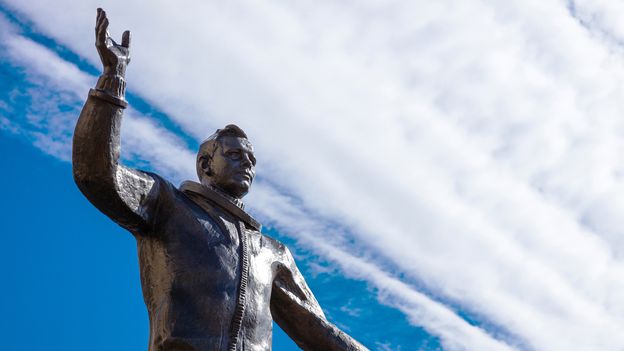This brave new world seeks to meld space and cyber-space. For both Immortalists and Transhumanists, the human personality lies in the brain, which can live eternally if “uploaded” onto a computer, a favoured theme of science fiction writers. The company Neuralink aims to provide brain-machine interfaces which merge human consciousness and artificial intelligence – helping humans “stay relevant” in a world dominated by AI.
On 28 December 1903, during a particularly harsh Russian winter, a pauper died of pneumonia on a trunk he had rented in a room full of destitute strangers. Nikolai Fyodorov died in obscurity, and he remains almost unknown in the West, yet in life he was celebrated by Leo Tolstoy and Fyodor Dostoevsky, and by a devoted group of disciples – one of whom is credited with winning the Space Race for the Soviet Union.
Now, just as he prophesied, Fyodorov is living a strange afterlife. He has become an icon for transhumanists worldwide and a spiritual guide for interplanetary exploration.
Fyodorov’s poverty came by religious choice rather than material necessity. He was the illegitimate child of Prince Pavel Gagarin, and spent his early childhood on the family’s country estate, until the sudden death of both his father and grandfather, Prince Ivan Gagarin. While Fyodorov’s family had no connection to the first cosmonaut, Anastasia Gacheva of the Fyodorov Museum-Library in Moscow says there is “an important symbolic coincidence – between the Gagarin who foresaw spaceflight in a philosophical way, and Yuri Gagarin who became the world’s first cosmonaut”.
